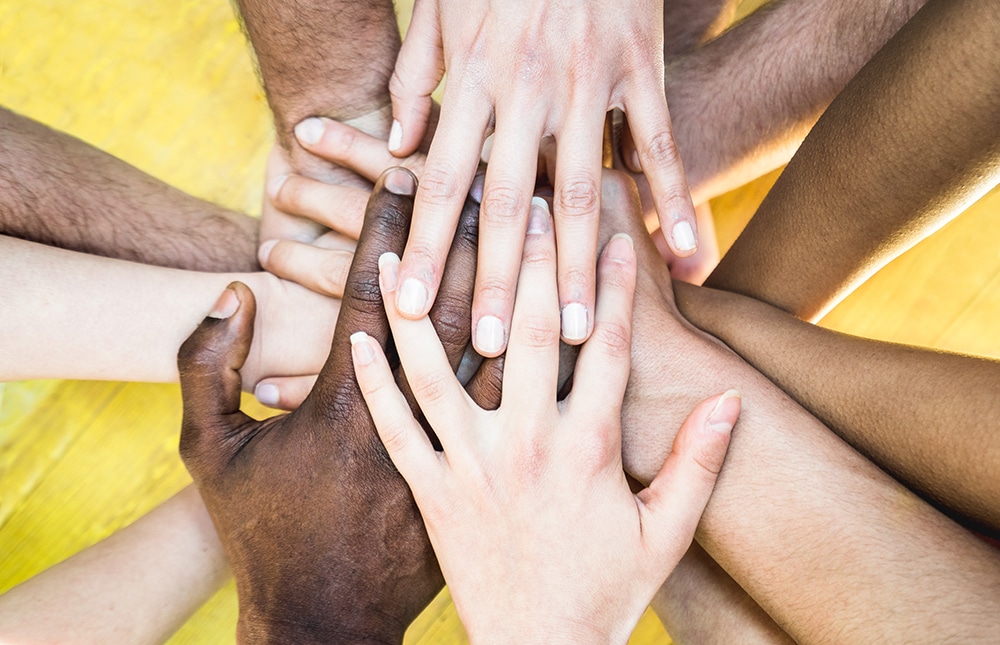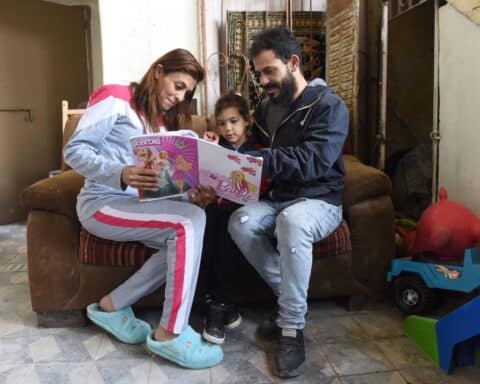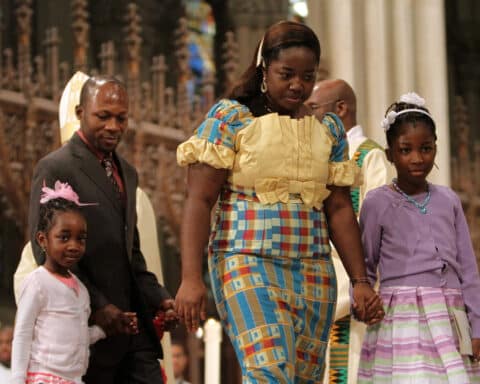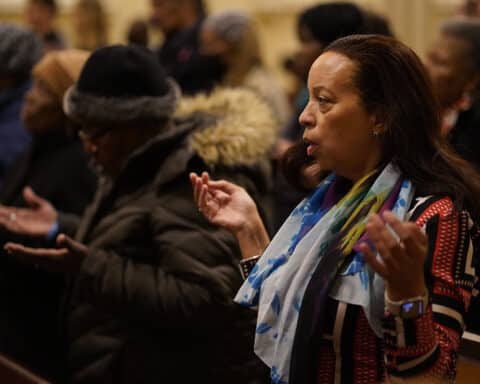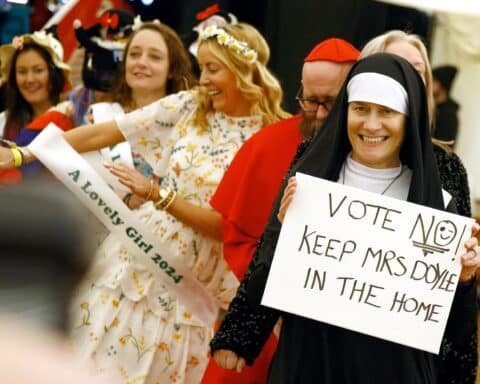
Because we’ve got a few children, we were late in leaving. We’re always late in leaving. Evening was turning to night, and we wondered aloud what it would look like to have a strange car rolling through neighborhoods in the dark, stopping at random houses and creeping up to leave packages on empty front porches. We joked about how some concerned citizen might call the cops on us. And then we laughed quietly at the thought.
Before we made our first stop, red and blue lights flashed behind us. I quickly pulled over and went through the usual checklist of infractions that I might have committed. I wasn’t speeding; I was fairly certain that I’d used my turn signal to change lanes. It turned out that we’d driven several miles at dusk without our headlights on. We have automatic lights, I explained, and told the officer that one of our kids must have been playing in the van and turned them off. I apologized. He was understanding, of course, and sent us on our way without even a written warning.
And so off we went to menace unfamiliar neighborhoods under the cover of darkness with craft sticks and construction paper and lesson plans.
Over the last several days — since the killing of George Floyd in Minneapolis and since protests have sadly erupted into violence in cities across America — I’ve thought about how that night could have been different for a black couple, and I wonder: Would they have made it home safely to their kids?
Lately I’ve read numerous accounts by black friends, acquaintances and strangers who have shared their experiences with law enforcement officers, mainly, but also how they navigate their lives as a minority in a mostly white society. How they take precautions that I wouldn’t think to take. Or need to take. How they’re gripped with fear when they see a patrol car. How they won’t walk in their mostly white neighborhood unless they have their dog and daughter with them to show that they aren’t a threat. How there comes a time in the life of black families when they sit their sons down — sons who the world once saw as little and cute but soon might see as a threat — to talk about how to lessen their chances of being involved in a fatal altercation.
My wife and I have six kids — the oldest are 17, 15 and 11 — and we had never talked to them about race. We never sat our daughter down and told her to keep her license and registration easily accessible so that reaching for the glovebox couldn’t be misinterpreted as a hostile action. We never told our sons to not wear hoodies while riding their bikes at night. We’ve been privileged enough that our race simply has never been an issue.
This past weekend, the topic of race came knocking hard on our front door. My wife, daughter and I were glued to live social media feeds, and we watched tear gas being used to disperse violent protesters in our own quiet city. We watched windows being smashed and arrests being made. We watched prayer vigils, and we watched protesters and police reaching out in love. And so we sat our kids down and told them about George Floyd and how he begged for his life, begged for his mother. We talked about the goodness of police officers and how if there is ever a situation that scares them, they should find an officer and trust them to help you, and they will. We talked about Black Lives Matter and how hard it must be to always be on alert, aware of your surroundings, constantly concerned for your safety because of the color of your skin.
But because their reality is not our reality, I’m quite certain that my kids don’t fully understand. How can they? Even as I’ve tried to educate myself on the history of racism in our country and the fears and barriers black people face every day, I’m quite certain that I don’t fully understand, either. And I never will. But I’m trying, and I’m listening.
Scott Warden is managing editor for Our Sunday Visitor.

